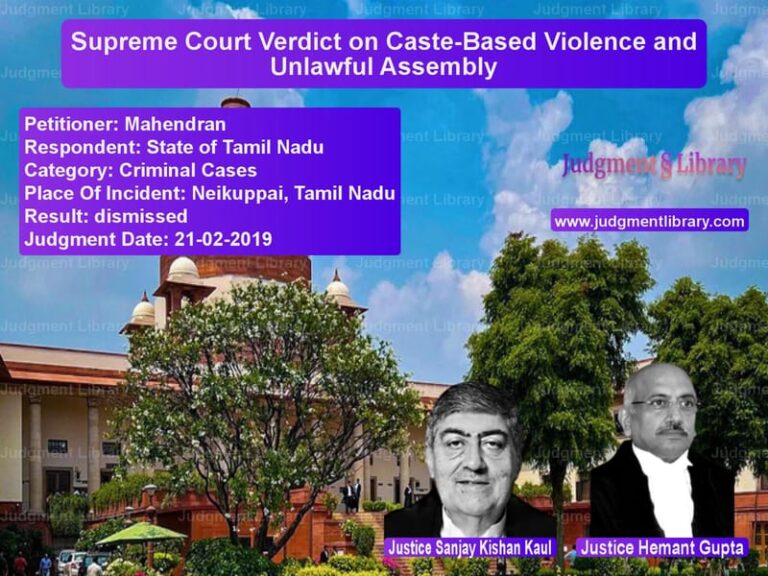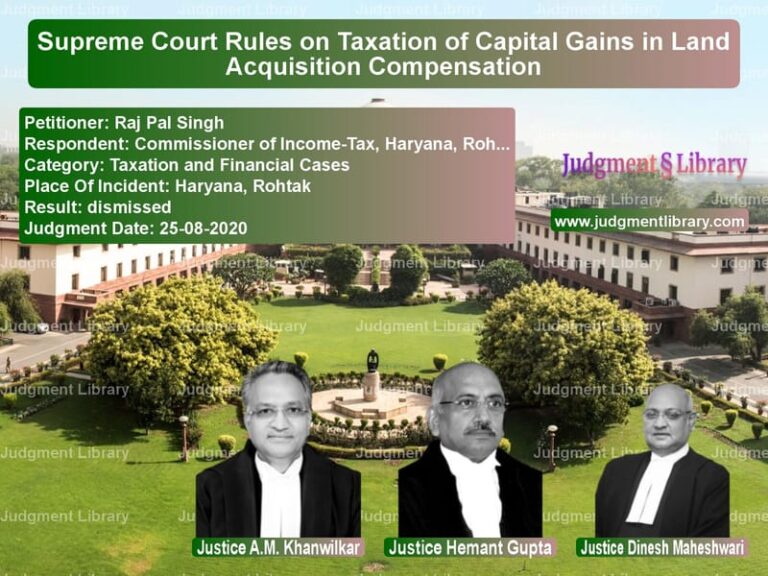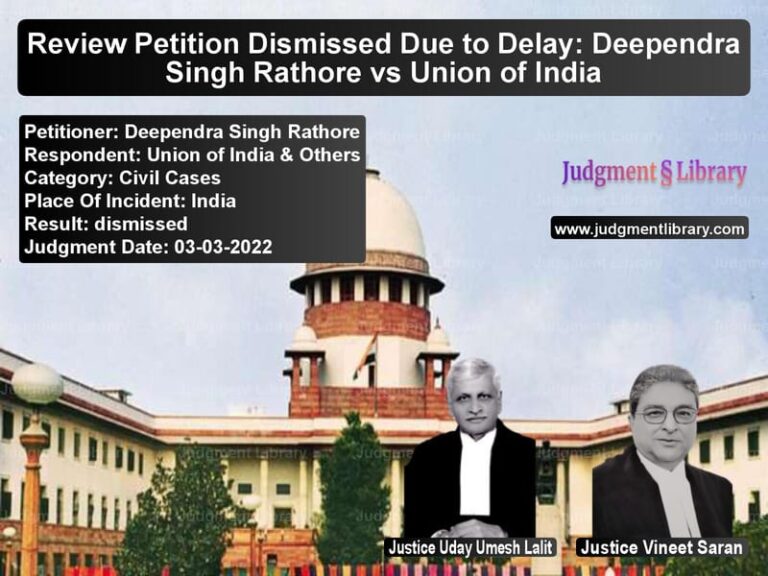Election of Panchayat Councilor Declared Valid: Supreme Court Overturns High Court Ruling
The Supreme Court of India recently delivered a significant judgment in the case of Ravi Namboothiri v. K.A. Baiju & Others, which revolved around the validity of an election to the Annamanada Gram Panchayat. The case stemmed from allegations that the elected candidate, Ravi Namboothiri, failed to disclose a past conviction while filing his nomination, leading to his election being declared void by the High Court of Kerala. However, the Supreme Court overturned this decision, reinstating Namboothiri’s election.
On 5th November 2015, elections were held for the Annamanada Gram Panchayat, where the appellant, Ravi Namboothiri, contested from Ward No.5 and was declared elected on 7th November 2015. The respondent, K.A. Baiju, filed an election petition challenging his election, citing non-disclosure of a past conviction in his nomination form. The District Munsif Court dismissed the petition, but the Additional District Judge later declared Namboothiri’s election void, a decision upheld by the Kerala High Court.
Petitioner’s Arguments
K.A. Baiju, the election petitioner, argued that Ravi Namboothiri deliberately suppressed material information regarding his conviction under Section 38 read with Section 52 of the Kerala Police Act. This, according to the petitioner, constituted “undue influence” as per Section 120(2) of the Kerala Panchayat Raj Act and amounted to a corrupt practice under Section 102(1)(b) of the Act. The petitioner contended that such non-disclosure deprived voters of the right to make an informed choice and warranted the election’s annulment.
Respondent’s Arguments
On behalf of the appellant, Senior Advocate Shri Ragenth Basant argued that failing to disclose a petty conviction related to a political protest should not be considered a corrupt practice. He emphasized that the Kerala Panchayat Raj Act only mandated disclosure of pending criminal cases at the time of filing nominations, not past convictions. Furthermore, he contended that the High Court’s interpretation of the law was erroneous, as the Representation of the People Act, which governs state and parliamentary elections, does not require candidates to disclose minor convictions unless they involve imprisonment of at least one year.
Supreme Court’s Analysis
The Supreme Court extensively examined the legal framework surrounding election disqualifications, particularly Section 102 of the Kerala Panchayat Raj Act. The court observed:
“The failure to disclose a conviction under the Kerala Police Act, which merely pertained to a political dharna, cannot be equated with corrupt practices involving bribery, fraud, or undue influence.”
The court also considered the definition of “fake” in the context of election disclosures. It held that while non-disclosure might be an irregularity, it did not amount to creating a fake document, nor did it influence voters in a manner that warranted nullifying the election. The judgment emphasized the historical context of protest-related convictions, stating:
“The Kerala Police Act, being a successor to colonial-era police laws, primarily governs public order and does not create substantive offences. Disclosing a conviction for merely disobeying police orders during a protest does not materially affect the electoral process.”
Final Judgment
After careful consideration, the Supreme Court concluded that the High Court and the Additional District Judge had erred in their interpretation of the law. The Court ruled:
“We are of the considered view that the District Court and the High Court were wrong in declaring the election of the appellant to be void on the ground that the failure of the appellant to disclose his conviction under the Kerala Police Act amounted to ‘undue influence on the free exercise of the electoral right.’”
Consequently, the Supreme Court allowed the appeal, set aside the previous orders, and reinstated Ravi Namboothiri as the elected councilor. The ruling clarified that only substantial electoral fraud or corruption could justify setting aside an election.
Petitioner Name: K.A. Baiju.Respondent Name: Ravi Namboothiri.Judgment By: Justice V. Ramasubramanian, Justice S. Abdul Nazeer.Place Of Incident: Annamanada Gram Panchayat, Kerala.Judgment Date: 09-11-2022.
Don’t miss out on the full details! Download the complete judgment in PDF format below and gain valuable insights instantly!
Download Judgment: k.a.-baiju-vs-ravi-namboothiri-supreme-court-of-india-judgment-dated-09-11-2022.pdf
Directly Download Judgment: Directly download this Judgment
See all petitions in Legislative Powers
See all petitions in Public Interest Litigation
See all petitions in Judgment by V. Ramasubramanian
See all petitions in Judgment by S. Abdul Nazeer
See all petitions in allowed
See all petitions in supreme court of India judgments November 2022
See all petitions in 2022 judgments
See all posts in Election and Political Cases Category
See all allowed petitions in Election and Political Cases Category
See all Dismissed petitions in Election and Political Cases Category
See all partially allowed petitions in Election and Political Cases Category







